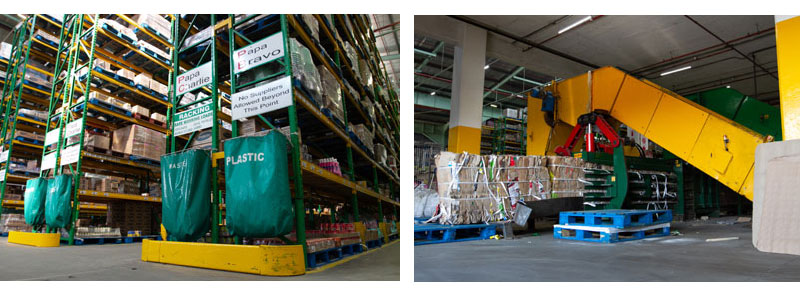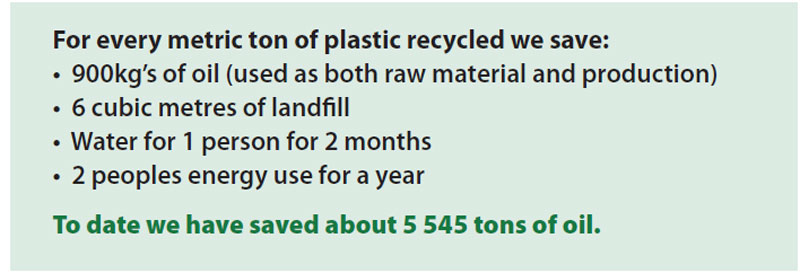As consumers, globally, we sometimes can be a little blasé with regards to single use plastics and other recyclable items. We think it’s okay because we’ll reuse the next bottle, or the one after that.
Researchers now estimate that only 9% of all plastic waste ever created has been recycled. (FYI: about 20 000 plastic bottles are bought globally every second – and their lifespan sits at about 500 years). That’s an intimidating figure, and one that should concern any individual even a little interested in our environment and our declining natural resources. It is also one of the reasons why SPAR has engaged in various ‘green initiatives’ for its stores and customers.
Our retailers are environmentally conscious, and have historically made use of the recycling options available to them, we however, wanted to find a better, more sustainable solution for everyone. To this end we have set up our own circular system to help manage our waste.
 What Our Process Entails
What Our Process Entails
• Outer plastic from packaging, as well as cardboard is picked up from stores and taken to our DC to be logged, weighed and baled, in separate lines. (Did you know that as far back as 2009, in partner- ship with recycL Junction, SPAR South Africa became the first retailer in SA to launch retail reverse logistics for recyclables? This means we use our own supply chain to return waste from the retailer to our DC’s).
• The plastic is recycled locally and used to produce various
products, such as bin bags.
• The cardboard is recycled in South Africa and abroad.
• By recycling, landfill is avoided, and this in turn reduces our carbon footprint as:
- It ensures a reduction in GHG emissions.
- No additional fuel is expended transporting the waste to a drop location.
- Less energy is needed to create new products through recycling old ones. (It also saves trees and oil).

More good news. Recycling and going ‘green’ like we are, can have a positive effect on the economy as it is a source of materials and creates jobs. In addition, we are actively investigating and implementing a great many more initiatives to help protect our environment, preserve natural resources (like water, timber and energy), reduce global warming, save animals and improve human health. Watch this space.
